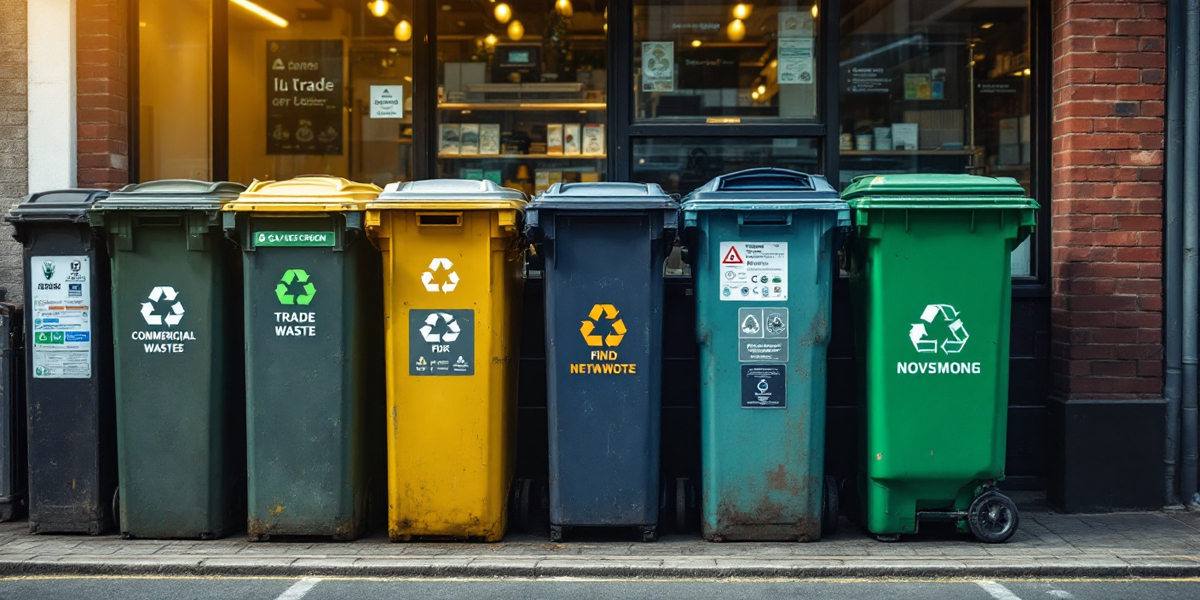The Waste Issue That Might Cost You Thousands

Trade waste is one of the least glamorous parts of running a business, yet it is quickly becoming one of the most expensive to ignore. Across the UK, companies are now facing tougher enforcement for waste offences, and many do not realise how easily routine mistakes can lead to serious financial penalties.
According to guidance from the Environment Agency, offences related to improper waste handling and disposal can result in unlimited fines, civil sanctions and even criminal prosecution. For businesses in hospitality, retail, manufacturing and food production, the risk is higher than ever.
A Growing Focus on Waste Compliance
Recent government updates highlight a stronger, more proactive approach to waste enforcement. The offences include:
● Disposing of controlled waste without the correct permit
● Failing to transfer waste to an authorised carrier
● Not keeping the required documentation for waste movements
● Allowing waste to escape from a business site
● Storing waste unsafely or contaminating recycling streams
These issues appear minor until an inspection takes place. One missing document or a single contaminated bin can trigger formal action, and the penalties can escalate quickly.
Why Businesses Are Falling Behind
Many small and mid-sized businesses still treat trade waste as if it were ordinary household rubbish. In reality, commercial waste must follow strict rules from the moment it is produced to the moment it is collected.
Common mistakes include:
● Putting recyclable materials in general waste bins
● Allowing bins to overflow or leak
● Using cheap, unlicensed carriers
● Failing to separate food waste
● Not keeping waste transfer notes
● Storing waste in unsecured areas
These errors usually happen due to a lack of training or unclear responsibility within the business. As enforcement tightens, the margin for error is shrinking.
The Financial Risk Is Significant
The Environment Agency’s offence response options include:
● Variable monetary penalties
● Stop notices
● Enforcement undertakings
● Criminal prosecution for serious or repeated breaches
● Unlimited fines under the Environmental Protection Act
Even a first offence can be costly. Beyond the financial hit, businesses risk inspection notices, reputational damage and increased scrutiny from insurers and local authorities.
Expert Insight
Kane Enviro, a waste management specialist working with organisations across the UK, says many businesses are unaware of how easily they can fall out of compliance.
“Most issues start small, like incorrect bin segregation or missing paperwork,” says a spokesperson for Kane Enviro. “The rules for trade waste are clear, but many businesses do not realise how closely they are monitored. A simple oversight can lead to real financial consequences.”
Companies looking for support are encouraged to review their systems and work with licensed professionals who offer compliant trade waste management services.
How Businesses Can Protect Themselves
To reduce the risk of enforcement, experts recommend:
● Reviewing all waste streams to ensure proper classification
● Checking that carriers are fully licensed
● Keeping all waste transfer and collection records
● Training staff to separate waste correctly
● Securing waste storage areas
● Scheduling regular compliance checks
● Auditing food waste and recycling procedures
These actions not only prevent fines but also often reduce overall waste costs.
Why This Matters Now
As environmental pressure increases and regulators become more active, waste offences are moving higher up the agenda. Businesses that strengthen their systems now will avoid costly penalties and show clients and customers that they take sustainability seriously.
Trade waste may not be the most exciting part of running a company, but in 2026, it might be one of the most important.










